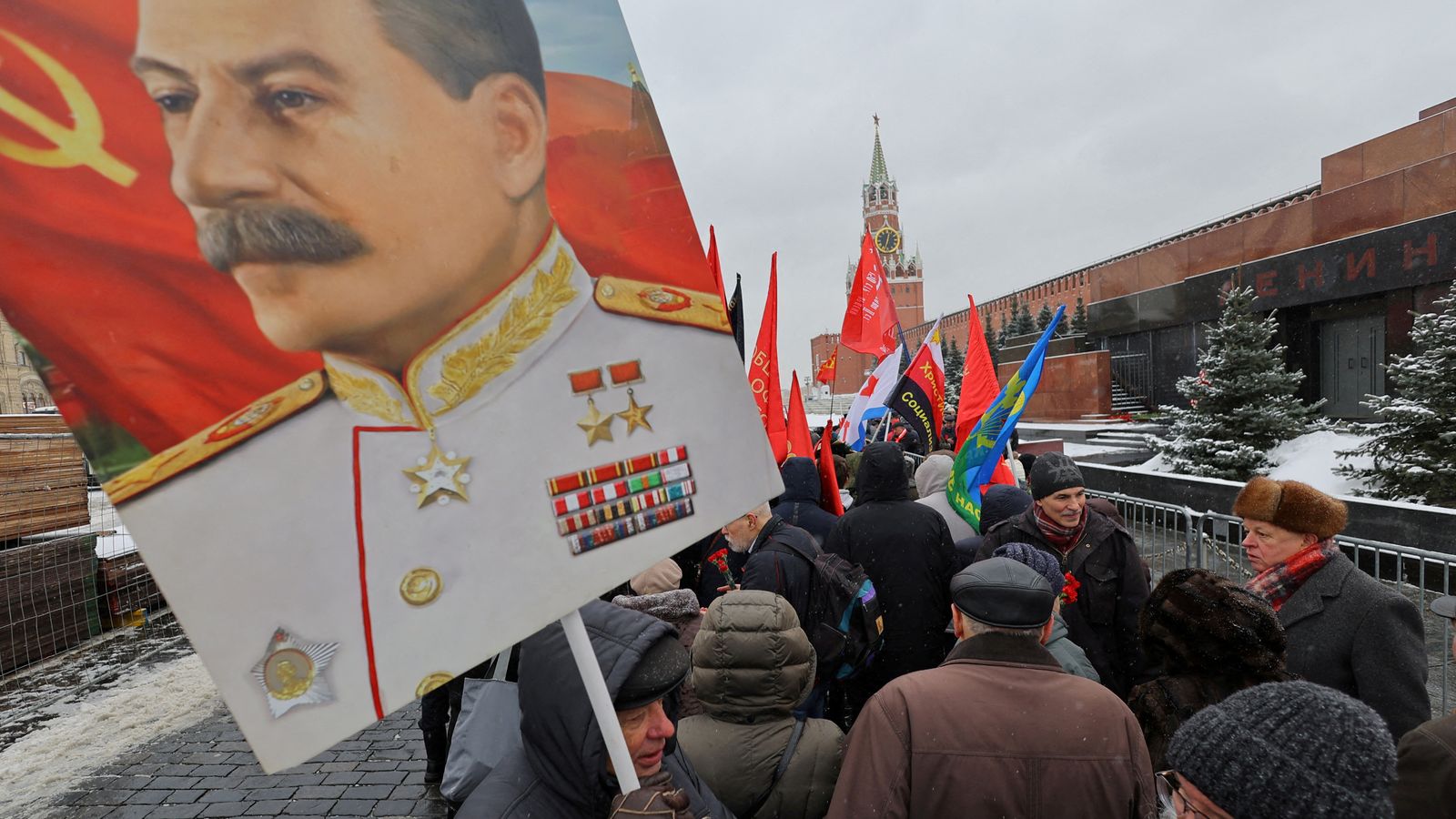The Communists of Russia party has asked the security service to investigate whether Western intelligence services were involved in the death of Joseph Stalin.
Stalin ruled the Soviet Union from 1924 until he died in 1953 – the cause of death was given as haemorrhagic stroke at the time.
Party chairman Sergei Malinkovich appears unsatisfied with the official version of events, however, announcing that he has asked the FSB (Federal Security Service) and prosecutors to “check the possible involvement of Western intelligence services in the death of Joseph Vissarionovich Stalin”.
Tuesday marked the 71st anniversary of Stalin’s death.
“Many testimonies from Stalin’s contemporaries speak of the possible poisoning of the leader of the Soviet nations by agents of Western influence,” he added, according to the state owned RIA news agency.
It was not immediately clear whether the FSB or the Prosecutor General’s office had replied to the party’s request.
Read more:
Germany accuses Russia of ‘information war’
Navalny’s mother lays flowers at his grave
Stalin wielded absolute power and oversaw Russia’s rapid industrialisation, but also the deaths of millions in purges, Gulag labour camps and famines.
President Vladimir Putin, who casts himself as an heir to the tsars of the past, has offered a measured assessment of Stalin, praising his war leadership while condemning his domestic policies as “totalitarian”.
President Putin is widely expected to secure another six-year term in office when Russia goes to the polls later this month.
